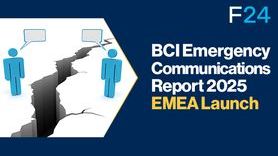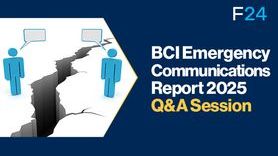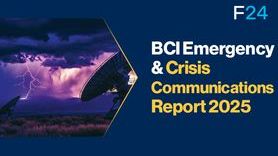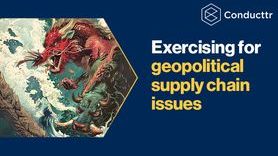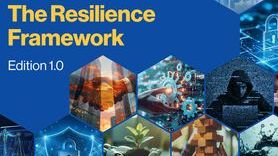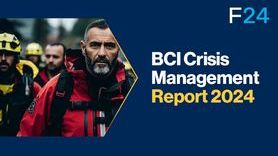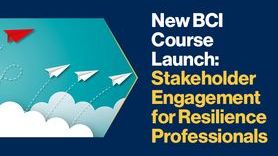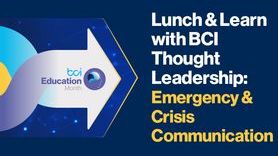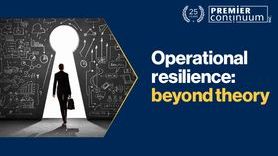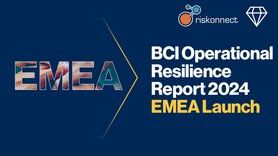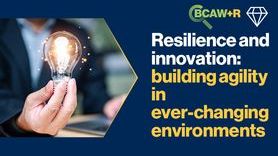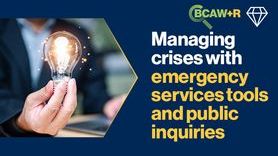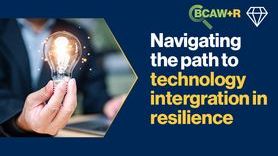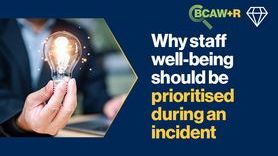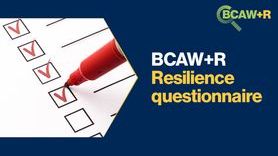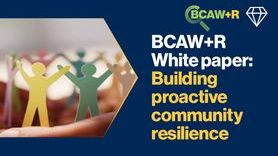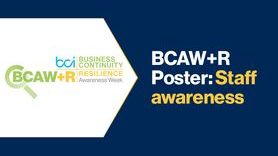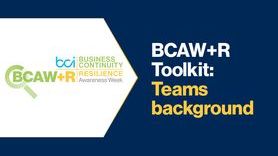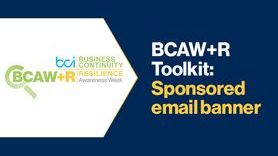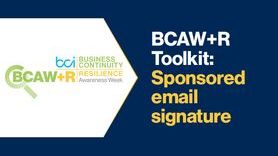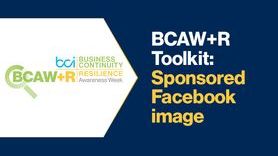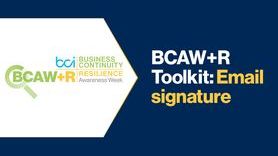Proactive preparedness: A case study of a comprehensive crisis management strategy

Executive Summary
In response to a dynamic and unpredictable operating environment, our organization has formulated a robust comprehensive crisis management strategy. This proactive preparedness framework addresses a wide spectrum of potential disruptions, encompassing political unrest, infrastructure failures, natural disasters, and pandemics. The strategy is designed to safeguard employee well-being, ensure business continuity, and enhance overall risk management are the key components of our proactive approach to crisis preparedness, response, and recovery.
Introduction
In Allianz Technology India Branch & Allianz Services Pvt. Ltd., collectively referred to as Allianz India, proactive crisis management strategy serves as a benchmark for addressing disruptions in the business landscape. By prioritizing risk mitigation, employee safety, resilient technology infrastructure, and transparent communication, the organization ensures not only its own continuity but also upholds its commitment to clients and stakeholders. This case study highlights the importance of a holistic and proactive approach to crisis management in today's unpredictable business environment.
- Political unrest:
- Allianz India acknowledges the impact of political disruptions such as hartals, general strikes, and processions on its operations. To mitigate risks associated with such events, the organization has implemented proactive measures as follows:
- Routinely monitor political developments and assess potential threats to employee safety and business continuity.
- Develops contingency plans to navigate road closures, transportation strikes, and other disruptions, ensuring alternative work arrangements and communication channels are in place.
- Conducts regular drills and training sessions to enhance employee preparedness and response capabilities during political unrest.
- Infrastructure disruptions:
- Disruptions to infrastructure, including fire incidents, water shortages, and power outages, pose significant challenges to business operations. Allianz India addresses these risks through proactive preparedness strategies:
- Implements intra-city and inter-city resilience strategies to mitigate the impact of infrastructure disruptions on its facilities and operations.
- Establishes robust protocols for emergency response, evacuation procedures, and business continuity planning to minimize downtime and ensure the safety of employees and assets.
- Invests in resilient infrastructure and redundant systems to enhance operational continuity and minimize the impact of infrastructure failures.
- Natural disasters and climate change:
- Allianz India recognizes the increasing frequency and severity of natural disasters and climate related risks. To adapt to these challenges, the organization adopts proactive strategies:
- Conducts comprehensive risk assessments to identify vulnerabilities and prioritize mitigation efforts in areas prone to natural disasters.
- Implements climate change adaptation measures, including sustainable practices, resilient infrastructure, and disaster preparedness training for employees.
- Collaborates with local communities, government agencies, and industry partners to enhance resilience, promote environmental sustainability, and mitigate the impact of climate change on its operations and stakeholders.
- Pandemics and human diseases:
- The emergence of pandemics and the prevalence of human diseases pose significant risks to employee health and business continuity. Allianz India proactively addresses these risks through the following strategies:
- Develops pandemic response protocols, including business continuity plans, remote work arrangements, and health and safety measures, to minimize the spread of infectious diseases and ensure employee well-being.
- Invests in healthcare infrastructure, telemedicine services, and employee wellness programs to support the physical and mental health of its workforce.
- Collaborates with public health authorities, medical experts, and industry peers to share best practices, monitor emerging threats, and enhance pandemic preparedness and response capabilities.
Challenges
Allianz India, through its Protection and Resilience Office, has adopted a proactive approach to crisis management, striving to safeguard its operations and stakeholders amidst diverse challenges including political unrest, infrastructure disruptions, natural disasters and climate change, and pandemics. While committed to resilience-building, the organization faces significant implementation challenges that demand strategic attention
Implementation challenges:
- Timely communication and coordination: Ensuring swift communication and coordination across diverse departments, locations, and stakeholders.
- Adapting to evolving threats and regulatory landscape: Adapting strategies to rapidly evolving threats, changing regulatory requirements, and shifting business priorities.
- Resource constraints and budget limitations: Addressing resource constraints and budget limitations while maintaining a focus on proactive risk management and resilience building.
- Enhance communication and coordination: Establish a centralized communication platform for streamlined information dissemination.
- Adaptability to changing threats and regulations: Establish a dynamic review process to assess and update crisis management strategies.
- Optimize resources for resilience: Prioritize critical risk areas and allocate resources based on the potential impact.
Actions taken
Allianz India recognizes the imperative of overcoming implementation challenges to fortify its proactive preparedness strategies. By prioritizing effective communication, adaptability to evolving threats, and resource optimization, the organization aims to strengthen its resilience against political unrest, infrastructure disruptions, natural disasters, climate change, pandemics, and human diseases. Through continuous improvement and collaboration across departments, Allianz India remains committed to building a resilient framework capable of navigating the complexities of the risk landscape.
Actions taken to overcome the implementation challenges:
- Timely communication and coordination: Implementing a centralized communication platform, regular training sessions, and real-time response drills to enhance collaboration and coordination.
- Adapting to evolving threats and regulatory landscape: Establishing a dynamic review process, engaging in scenario planning, and maintaining flexibility in response strategies to align with emerging challenges.
- Resource constraints and budget limitations: Prioritizing risk assessments, cost-effective technology solutions, and exploring partnerships to optimize resources and enhance the organization's preparedness capabilities.
- Enhance communication and coordination: Conduct regular cross-functional training and simulations to foster effective coordination.
- Adaptability to changing threats and regulations: Engage in proactive scenario planning to anticipate evolving threats and regulatory changes.
- Optimize resources for resilience: Explore cost-effective technology solutions and strategic partnerships to enhance resilience without exceeding budgetary constraints.
Results
- Streamlined communication and coordination across departments and locations.
- Improved response times to emerging threats.
- Enhanced collaboration through regular training sessions and real-time response drills.
- Dynamic review process enabled swift adjustments to crisis management strategies.
- Proactive scenario planning facilitated anticipation of emerging threats.
- Flexibility in response strategies ensured alignment with evolving regulatory requirements.
- Prioritized risk assessments optimized resource allocation.
- Exploration of cost-effective technology solutions.
- Strategic partnerships contributed to resource optimization.
- Improved cross-functional collaboration through regular training sessions.
- Simulations fostered effective coordination and communication.
- Proactive scenario planning facilitated anticipation of emerging threats.
- Continuous reviews allowed for dynamic adjustments to response strategies.
- Exploration of cost-effective technology solutions enhanced overall resilience.
- Strategic partnerships contributed to resource optimization.
Allianz India's strategic actions to overcome implementation challenges have resulted in a more resilient and adaptable organization. The enhanced communication, adaptability, and resource optimization strategies have positioned the organization to effectively navigate the complexities of the risk landscape, ensuring a proactive and prepared response to various potential disruptions. Continuous improvement and collaboration across departments remain integral to sustaining and evolving this resilient framework.
Lessons learned
- Centralized communication platforms are crucial for timely information dissemination and coordination.
- Evolving threats require a dynamic review process and adaptable strategies.
- Establish a continuous review mechanism and maintain flexibility to adjust strategies promptly in response to emerging challenges and changing circumstances.
- Resource constraints necessitate prioritization and optimization.
- Prioritize critical areas based on risk assessments, explore cost-effective technology solutions, and leverage strategic partnerships to optimize resources without compromising preparedness.
- Regular training sessions and simulations enhance cross-functional collaboration.
- Conduct ongoing training to foster a culture of collaboration, ensuring that teams are well-prepared to coordinate effectively during crises.
- Anticipating potential threats through scenario planning is essential.
- A culture of continuous improvement is vital for resilience.
- Proactively address regulatory changes through dynamic strategies.
- Stay abreast of regulatory developments and ensure that crisis management plans are updated to remain compliant with changing requirements.
- Employee awareness and training are foundational elements of preparedness.
- Invest in ongoing employee training programs to enhance awareness, responsiveness, and the overall effectiveness of crisis management efforts.
- Comprehensive risk assessments are crucial for effective preparedness.
- Regularly assess and prioritize risks based on potential impact and likelihood, guiding resource allocation and proactive planning efforts.
These lessons underscore the importance of a holistic and adaptive approach to proactive preparedness. By continually refining strategies, fostering collaboration, and staying attuned to emerging challenges, Allianz India can build and sustain resilience in the face of diverse and dynamic risks.
Conclusion
In conclusion, Allianz India's journey towards proactive preparedness has been marked by significant challenges, strategic actions, and valuable lessons. Faced with the diverse array of potential disruptions, including political unrest, infrastructure disruptions, natural disasters, climate change, pandemics, and human diseases, the organization recognized the imperative to fortify its resilience.
Allianz India remains committed to building a resilient framework capable of navigating the complexities of the risk landscape. Continuous improvement initiatives and collaboration across departments underscore the organization's commitment to evolving with emerging challenges. The valuable lessons learned provide a roadmap for sustaining and enhancing proactive preparedness, ensuring the organization's readiness to face diverse and dynamic disruptions. As Allianz India moves forward, these insights will continue to guide its efforts in building a resilient and agile organizational structure.




